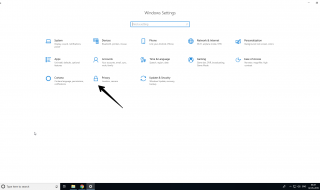Becoming a Lead Researcher
If you’re interested in becoming a lead researcher, you’ve come to the right place. This article will discuss the qualifications, responsibilities, and salary for this role. It also discusses the different ways you can find qualified candidates. Listed below are the steps you should take to become a lead researcher to generate robust business-to-business leads. Hopefully, the information you receive will help you in the decision-making process. There are many advantages to becoming a lead researcher.
Qualifications

The Lead Researcher position requires an experienced and highly qualified person with a background in economics or public health. You will have worked as a Principal Investigator on large research projects and are passionate about conducting high-quality research. You will enjoy working with a large team and be skilled at quantitative evaluation design. The Lead Researcher will be responsible for managing multiple projects and be highly proficient in statistical analysis. The work will often take place in challenging environments with weak infrastructure. Therefore, you will need versatility, pragmatism, and tactical thinking.
A PhD or other advanced degree in a scientific field is necessary for the position of Lead Researcher. Moreover, you must possess strong technical expertise and understand how to bring an idea from the lab to the product stage. You should have excellent interpersonal and problem-solving skills, and be able to interact with engineers, clinical personnel, and marketing staff. A Lead Scientist may report directly to the CEO. If you are passionate about science and have a strong interest in developing new technologies, you can consider working as a Lead Scientist.
As a Lead Researcher, you will deliver high-quality, highly-targeted business leads. The results of educational research are complex and can be difficult to interpret. Therefore, it is crucial for you to understand the findings of educational research in order to improve the quality of your sales and marketing campaigns. The Lead Researcher will work with your client’s buyer persona or ICP to capture all details of every lead. This is the foundation for any lead generation process.
It is necessary to demonstrate excellent analytical skills . The lead researcher will act as the project manager and guide throughout the research process. Besides, you must be a strong data collector, and must be familiar with statistical methods of your discipline. You should be proficient in writing reports and creating actionable recommendations. Some research jobs require high quantitative skills while others require more qualitative knowledge. If you are passionate about quantitative and qualitative research, you can explore this career path and provide B2B lead generation services.
Responsibilities
The role of a lead researcher in lead generation companies involves overseeing a team of research assistants. They conduct desktop research, analyze patterns, and record findings using appropriate software. Lead researchers develop research standards and guidelines, work closely with management, and write proposals and presentations when required. They must also have at least a bachelor’s degree, excellent communication skills, and experience. Responsibilities of a lead researcher may vary by organization, but are typically based on the research coordinator’s responsibilities.
The main responsibility of the lead researcher is to generate highly targeted and curated business leads for clients. The research results of outbound prospecting are based on the quality of the contact lists. Buying contact lists may be inaccurate because they don’t include all the details that lead researchers can find. CIENCE’s lead researchers base their work on the client’s buyer persona and ICP, recording all lead details in a database.
The lead scientist performs research to generate innovative ideas. He or she defines the scope and course of action for the project and delegates tasks accordingly. The lead scientist may be asked to evaluate new research methods and develop experiments. He or she may also be required to present their findings at scientific conferences or write proposals to raise funding. In addition to delegating tasks, lead scientists also communicate with customers and clients and provide b2b appointment setting services. They are often responsible for overseeing safety policies and ensuring the safety of researchers and the public. In the process of online communication, it is vital to ensure the delivery of emails to potential buyers. One can do it with the help of numerous email deliverability tools. Pay attention to the deliverability software launched by Folderly. It offers a comprehensive approach to improve your email performance. So a lead researcher may concentrate on his job, while Folderly is coping with the delivery of your messages.
Salary
Salary for lead researchers who provide B2B lead generation services varies by company and industry. This position requires highly dedicated, tedium-resistant workers who are rewarded for their accuracy. While salaries for lead researchers may seem low, they are actually higher than the average salary for other professionals in the same field. Listed below are the various jobs for lead researchers, and their respective salaries. You can check out the full list of job titles and descriptions for lead researchers in the United States.
The top paying cities for Lead Researchers:
- Sunnyvale, CA is the highest city for this role,
- Santa Rosa, CA,
- Cambridge, MA.
The national average for Lead Researchers is $71,810, but in California the average is $81,379 per year. Salary for Lead Researchers vary by city, so check the Salary and Employment Statistics page for the best local opportunities in your area. Besides salaries, consider the city you want to live in.
The salary for Lead Research Scientist can be as high as $131,500, but the majority of jobs pay between $39,000 and $116,000 annually. The top 10% of Lead Researchers earn an average of $127,500. Salary for Lead Research Scientists can vary widely from location to location. You should consider your experience when determining salary and incentive package for this position. You can view more information on the Professional Salary Report. You can also look up Lead Researcher salary information on Indeed.com.
Education
As a lead researcher in education, you will provide the vital link between educational research and the school setting. This role involves being well-versed in educational research and transforming its findings into actionable recommendations. As a result, you may also be responsible for recreating research findings for busy teachers, running CPD sessions, or writing literature reviews. If this sounds like a career you’d enjoy, check out the following jobs to find out how you can take on the role.
A lead researcher in education should be able to provide a clear roadmap that outlines how they will engage with students. The goals and strategies must be measurable, but the best way to do that is by ensuring the research is well implemented. In addition, they should be willing to share the findings with the school community, as well as those involved in the project. This ensures the study is conducted in a manner that will make it useful and interesting for everyone involved.
As a Lead Research Scientist for Education Translation at the Information Trust Institute, Stanislav is responsible for developing resilient computing and critical infrastructure focused on security research programs for universities. This role involves combining active research activities and transforming the findings into innovative university educational programs. The Information Trust Institute focuses on the use of technology to offer online and hands-on instruction for teachers and students. Further, the team also promotes the importance of technology for distance learning.
In addition to providing a variety of educational interventions, the Lead Researcher in Education also conducts a journal club for teaching staff and other school personnel. During these sessions, a lead researcher in education facilitates discussion based on educational theory, concept, approach, learning objectives, and foundation steps of EBP. A number of participants attended a journal club and shared their experiences and insights. The journals from the journal club are then discussed in the seminar room, which is located within the school library.
In her career, Sofia has worked in various sectors related to education, including the disadvantaged sectors. She has worked as a professor of sociocultural theory, co-founder of the Museum of Contemporary Native Arts, and Alliances Manager at Proacceso. She studied Humanities at UPF Barcelona and Communication of Science at ITESO. She has also represented Mexico in Ship for Worlds Youth. Now, as a Lead researcher in education, she is working to scale the impact of social ventures.


